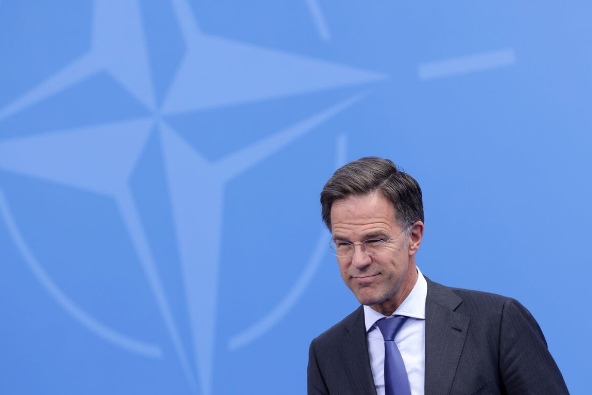NATO’s future secretary-general Mark Rutte has revealed that he will go on holiday for three months before taking up his job in the alliance.
Mark Rutte will become NATO’s next secretary-general after all 32 members of the alliance agreed that the outgoing Dutch prime minister will succeed Jens Stoltenberg.
At a meeting of the Supreme National Defence Council, Romanian President Klaus Iohannis said he had notified NATO allies that he had withdrawn his candidacy.
Rutte will lead NATO at a critical time. His new job will begin on October 2, just over a month before the US election that will determine the fate of the military alliance. Former US President Donald Trump, the current Republican candidate, has pledged to stay in NATO but has threatened to cut US aid to Ukraine if re-elected.
Rutte’s confirmation also means the succession issue will be resolved before July, when NATO leaders travel to Washington to mark the alliance’s 75th anniversary.
Rutte has long sought the post of NATO chief. He has been campaigning since last November.
The future NATO chief has consistently failed to bring Dutch defence spending to the NATO target of 2 per cent of GDP throughout his 14-year premiership of the EU’s fifth-largest economy. According to the latest NATO figures, the Netherlands will finally reach that target this year.
Unanimous support
The candidate of Mark Rutte was earlier reported to be backed by Slovakia. Approval was also received from Romania. In February, his candidacy was supported by Germany, the US, the UK and Turkey. In mid-June, Mark Rutte secured Hungary’s support, promising Budapest the official right not to participate in military and financial support for Ukraine.
Romanian President Iohannis joined the race for the post late in the day. When he announced his candidacy in March, two-thirds of all NATO allies had already sided with Rutte. During the three-month race, Johannis received only one vote among 32 allies – that of Hungarian Prime Minister Viktor Orbán.
Rutte’s choice was also the result of a protracted process that saw Stoltenberg’s term extended four times. Stoltenberg told POLITICO last week:
“I’m very confident that the alliance will find a good successor.”
